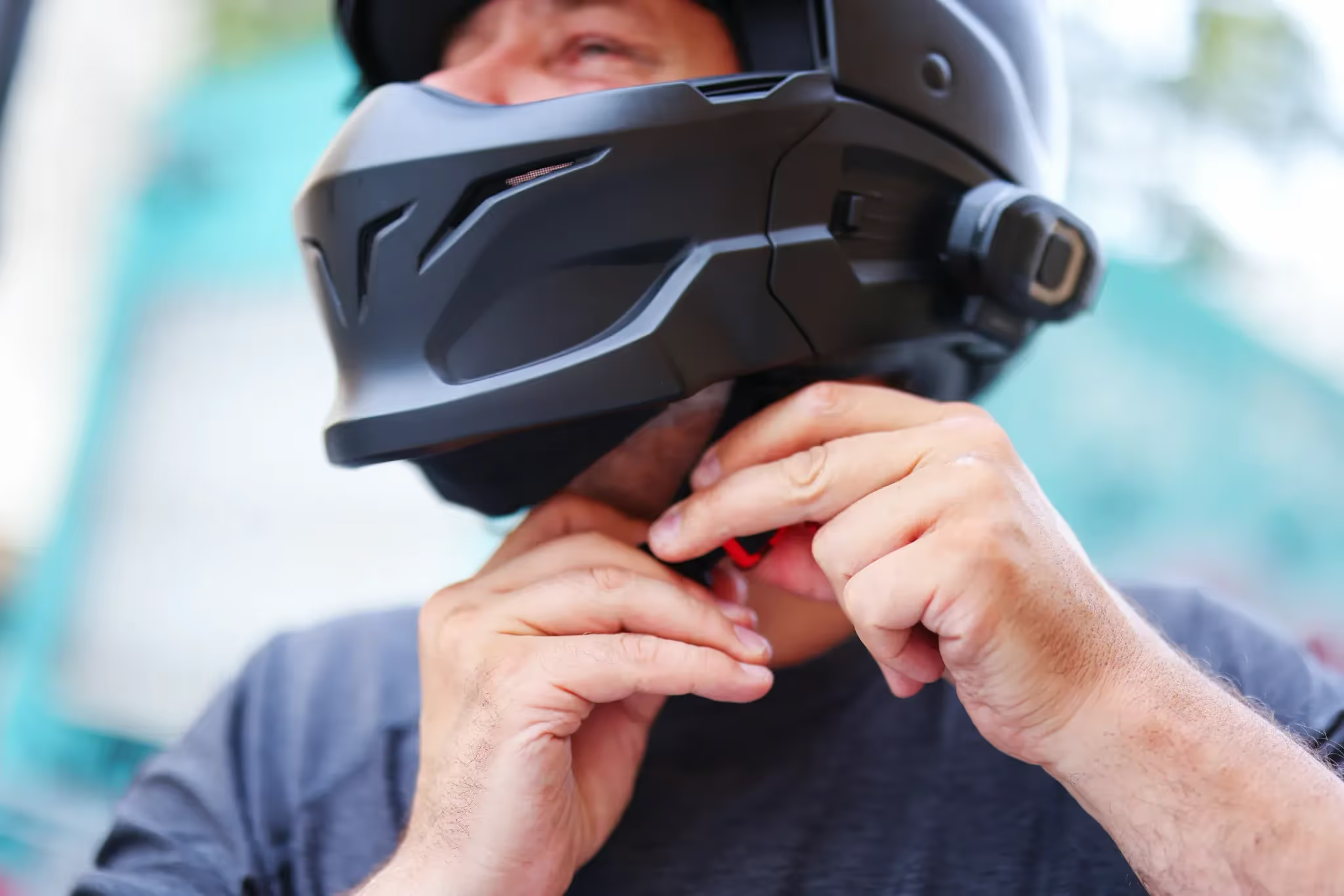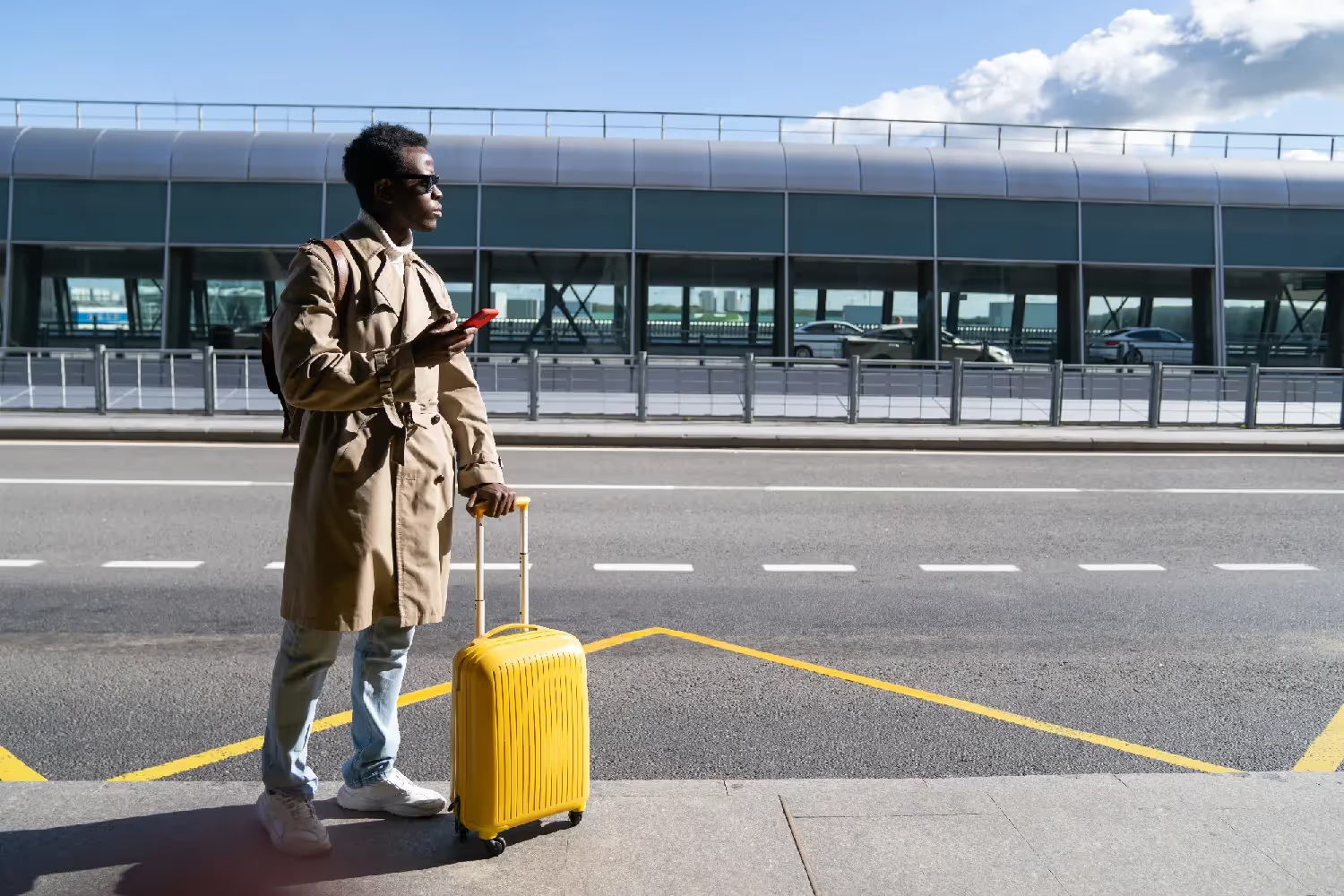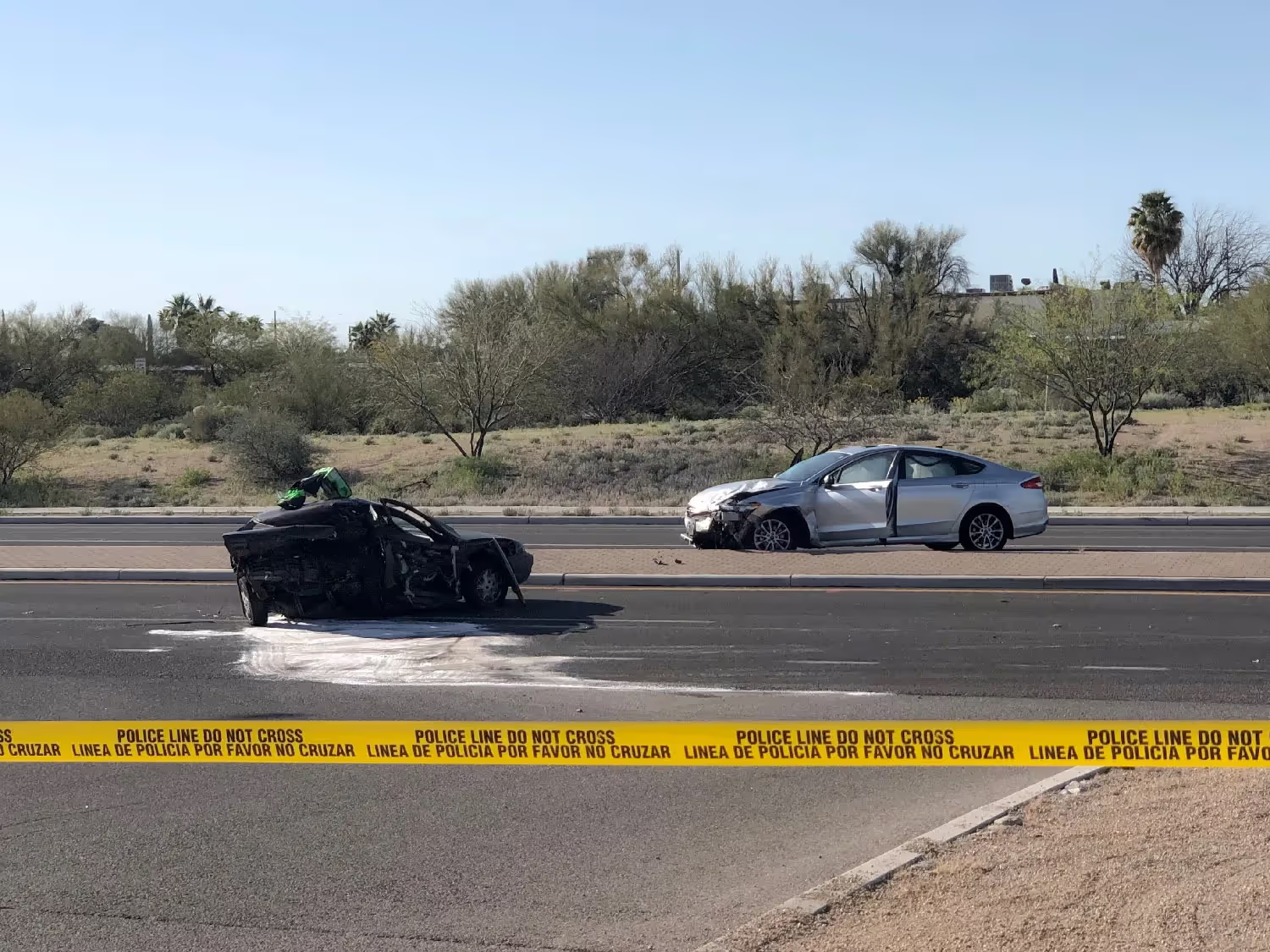table of contents
Georgia does have a helmet law that applies to motorcycle riders. Yes, motorcycle riders in Georgia need to wear proper protective gear before hitting the road. That includes a legally appropriate helmet. When you fail to comply with the GA motorcycle helmet law, you're not just putting yourself at risk for traumatic brain injury (TBI). Riding without protection means you're also inviting legal repercussions. Here's a look at what you need to know about the Georgia helmet law.
What is Georgia's motorcycle helmet law?
Georgia's universal motorcycle helmet law (O.C.G.A. 40-6-315) requires all riders and passengers to wear a US DOT-approved helmet. A universal helmet law is universal in that it applies to all riders and passengers. Georgia is one of the few states not to have helmet exemptions based on age or riding experience. If you're used to riding in other states, it's important that you not take liberties based on your past experiences with more lenient laws. What's more, even out-of-state riders crossing state lines onto Georgia roads must comply with the helmet law Georgia residents follow.
The GA motorcycle helmet law also has an eye protection requirement. Under O.C.G.A. 40-6-315, no person shall operate or ride on a motorcycle if the motorcycle is not equipped with a windshield. If a motorcycle is without a windshield, operators and passengers must wear a DOT-approved eye-protective device.
What are the requirements for a DOT-approved helmet?
Luckily, the DOT provides clear and easy guidelines for finding compliant gear. DOT-approved motorcycle helmets are sold by major retailers and motorcycle dealerships.
A DOT-approved helmet complies with federal standards for impact attenuation, penetration resistance, and retention. When you shop, look for the DOT symbol on the outside back of the helmet indicating that the product meets the DOT's Federal Motor Vehicle Safety Standard (FMVSS) No. 218.
While the DOT can tell you which helmets meet its safety standards, it can't tell you which helmet is your perfect fit. Shop in person to ensure a secure, comfortable fit that prevents your helmet from feeling cumbersome. Motorcycle helmets come in different shapes (round oval, long oval, and intermediate oval) to account for different head shapes. Next, measure your head for a precise fit. Here's how to measure your head for a motorcycle helmet:
- Using cloth tape, start just above your eyebrows and circle around the thickest point in the rear of your head.
- Cross-reference this measurement with a helmet size chart.
- When trying on helmets, avoid styles that fit loosely on your head. A correctly sized helmet will fit tightly without creating uncomfortable pressure.
- Do the shake test. A properly fitted helmet won't move around or shift when you shake your head.
- A properly fitted helmet should not reduce vision or mask your ability to hear traffic sounds.
It's important not to look at the Georgia motorcycle helmet law as a burden. Helmets enhance the riding experience by protecting you from wind, bugs, and debris. Remember that a helmet can dramatically improve your survivability and reduce the severity of head injuries in the event of an accident. Information from the Centers for Disease Control shows that motorcycle helmets are estimated to be 37% effective in preventing fatal injuries to motorcycle operators and 41% effective for motorcycle passengers.
Penalties for not wearing a helmet in Georgia
Georgia is a helmet state. It's actually one of the strictest helmet states. Ignoring the GA helmet law has severe repercussions both for bodily harm and legal troubles. It's simply not worth it to be negligent. Depending on the circumstances, you'll face a variety of legal consequences if you're caught on the road without a helmet.
Fines and misdemeanor charges
Violating the Georgia helmet law can result in a misdemeanor penalty that carries a fine of up to $1,000.
License points and suspension risk
You're not likely to automatically lose your license if you're caught riding without a helmet in Georgia. However, points that count toward suspension will be added to your license every time you're caught failing to wear a helmet. License points stay on the record for two years in Georgia. If you accumulate more than 15 points in a 24-month period, your license will be suspended. Each GA helmet law violation comes with a three-point penalty.
How can failing to wear a helmet affect my accident claim?
The concise way of saying it is that failing to wear a helmet can extend shared fault to you even when another driver is to blame for the collision. This is due to something called comparative negligence. If the other driver can prove you weren't wearing a helmet, you may receive less money if you end up filing an injury claim or lawsuit. This can leave you without the funds you need to get care for an injury or take time off from work for rehabilitation. Depending on the circumstance, you could be vulnerable to criminal and civil penalties stemming from failure to obey helmet laws for yourself or a passenger.
Comparative Negligence in Georgia
Georgia's comparative negligence doctrine dictates that your shared negligence can legally reduce the amount of compensation you're entitled to receive through a personal injury lawsuit. For example, the other side can (successfully) argue that your injuries could have been mitigated if you were wearing a helmet. In the case of not wearing a helmet, comparative negligence will generally come into play for a TBI instead of something like a back or torso injury because those areas of the body are not protected by helmets. Comparative negligence doesn't completely block you from seeking damages in a motorcycle accident claim with help from personal injury attorneys in Atlanta. However, it can potentially dramatically reduce your payout for some injuries.
Contact a Georgia motorcycle accident lawyer
If you’re about to purchase your first motorcycle or you’re a seasoned rider recovering from a wreck, you should know that there is a helmet law in Georgia that applies to all motorcyclists on the road. Absolutely. It's never too early—or late—to learn about your rights as a rider. If you have questions you'd like to ask a Georgia motorcycle accident lawyer, schedule a free consultation today with Kermani LLP. Use our online form or call (855) 537-6264 now.
Discover your legal options. Get a free case review, and pay nothing unless we win.
Receive a FREE case assessment
Every case is unique, so we tailor our approach to meet your specific needs.











